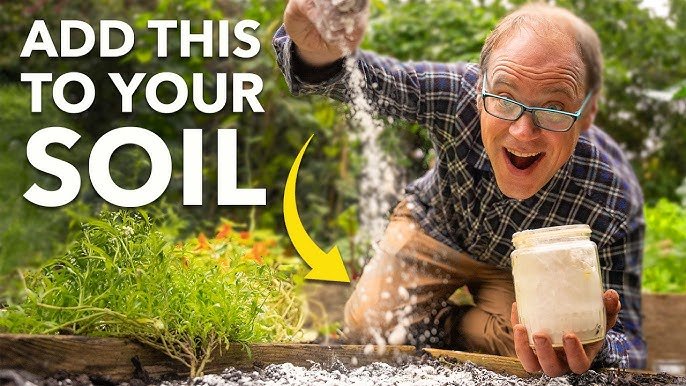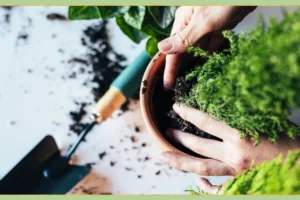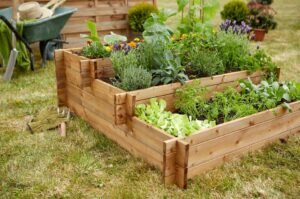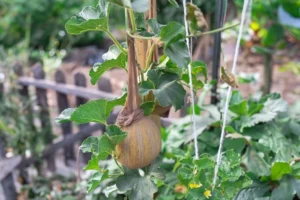Gardening is one of the best hobbies because it provides fresh food, beautiful flowers, and a relaxing outdoor space. But it can also take a lot of time and be hard on the body. For gardeners and homes that are always on the go, smart gardening tips that save time and effort can make a significant difference. You can keep your garden growing without putting in hours of hard work if you know what to do. This guide will discuss useful gardening tips that will make your job easier, make you more productive, lower your stress, and keep your green space healthy and full of life.
Layout
A well-thought-out plan is the first step to smart gardening. By planning your yard ahead of time, you can avoid having to do extra work later on. First, put plants together that need about the same amount of water, sunshine, and soil. This makes your care process easier and keeps you from wasting time.
If you don’t have a lot of room, raised beds and container gardens are also great choices. They not only make gardening easier to do, but they also make bending and pulling weeds easier. To make watering and harvesting easier, put the bigger plants in the back and the shorter ones in the front. Every step you take in a yard that has been carefully planned will make it healthier and easier to take care of.
Mulch
It takes a lot of time to pull weeds in the yard, but mulch can make it a lot easier. Putting down a layer of organic mulch, like wood chips, straw, or shredded leaves, blocks sunshine and stops weeds from growing. At the same time, mulch keeps dirt moist, so you don’t have to water as often.
As mulch breaks down, it improves the quality of the soil by adding valuable nutrients to it. Leave a small space between the mulch and the base of your plants so that they don’t rot. This way, you can enjoy your garden more and work in it less.
Drip irrigation System
Watering is important, but it doesn’t have to take up all of your morning and evening hours. A drip irrigation method sends water directly to the roots of plants, making sure they get enough water without wasting any. Drip irrigation saves water and only applies it to the places that need it most, unlike sprinklers, which can lose water to evaporation.
Soaker hoses are a cheap option for gardens that aren’t massive. A timer can be used with either way to set up a hands-free watering schedule. This feature means you can keep your plants healthy even when you’re not at home or busy, which saves you time and keeps your garden full.
Plants Picking
Picking plants that don’t need much care is another smart gardening tip. Native plants, for instance, are naturally adapted to the weather and dirt where you live, which makes them easier to grow. Plants that can survive in dry conditions, succulents, and perennials also do well with little care compared to species that need a lot of care.
If you choose hardy plants first, you won’t have to water, prune, and fertilize them as often. However, this does not imply that your yard must be dull. Many low-maintenance plants have bright colors, interesting textures, and even fruits and vegetables that you can eat. You can make a beautiful yard that doesn’t take up all of your time by picking the right plants.
Plant companion plants
When you use companion planting, you grow certain plants next to each other so that they can help each other. Planting basil near tomatoes, for example, can keep pests away, and marigolds can help keep dangerous bugs away from your whole garden. This approach keeps you from having to use chemical herbicides and gets rid of the problem of pests.
Partner planting also makes the soil healthier and makes the most of room, which is especially helpful for gardens that aren’t massive. By putting together plants that get along, you can avoid doing too much work and encourage natural growth and defense.
Smart Technology
Technology has changed gardening by making it easy to keep up with little work. Smart gardening tools like soil wetness sensors, automatic sprinklers, and lights that you can control from an app can help you keep an eye on and take care of your garden more effectively. With these tools, you can keep an eye on the soil’s health, how much water it needs, and how much sunshine it gets in real time.
For example, a smart irrigation system changes when to water plants based on the weather forecast in the area. This keeps plants from getting too much water on days when it rains. These gadgets not only save you time but also help you give your plants the best care possible, which is beneficial for their health.
Natural fertilizer
You don’t have to make many trips to the store to fertilize your yard. Composting is an easy, long-lasting way to improve your soil and cut down on household trash. You can make your own nutrient-rich compost at home by collecting food scraps like eggshells, vegetable peels, and coffee grounds.
Using compost improves the earth, helps roots grow in a healthy way, and lowers the need for synthetic fertilizers. This simple habit will lower your gardening costs over time and make your plants healthier and more resistant.
Grow weeds smarter
Instead of pulling weeds for hours on end, use smart methods that make the job go faster. One way is to pull weeds after it rains or rains, when the earth is still wet and the roots are easy to pull out. To get rid of weeds without having to bend over all the time, use a hoe or weeding tool with a long handle.
You can also stop weeds from growing by using natural remedies like vinegar spray or pesticides that work before they even sprout. You can spend more time enjoying your yard and less time fighting weeds if you plan how to do it.
What You Need to Know About Smart Gardening
1. What are the best plants for newbies that don’t need much care?
Succulents, lavender, hostas, marigolds, and native plants are all great choices. These plants are hardy, don’t need as much water, and don’t get eaten by most bugs.
2. What can I do to keep my yard from using too much water?
The best ways to save water and keep your garden healthy are to use drip watering, mulch, and pick plants that can survive in dry conditions.
3. Do smart tools for gardening really work?
Yes, smart gadgets like soil sensors, automated irrigation, and plant-care apps can make work much easier and faster, especially for gardeners who are always on the go.
4. How often should I put down mulch?
About once or twice a year, a new layer of mulch is put down. But make sure to check on it often and add more as needed to keep the weeds down and the water in.
5. Can waste be used instead of all store-bought fertilizer?
Most of the time, yes. Compost organically improves the health of the soil and adds nutrients that plants need. Supplemental fertilizer may still be helpful for plants that need a lot of nutrients.
In conclusion
Working with nature, technology, and efficient methods to cut down on work that isn’t necessary is what smart farming is all about. You can have a beautiful garden without spending hours a day taking care of it if you plan your layout, use mulch, set up automatic watering, and choose plants that don’t need much care. Using smart tools, compost, and partner planting makes gardening even easier while still keeping your plants healthy and growing well.
With these tips, gardening will be less of a chore and more of a fun and peaceful activity. No matter how much experience you have as a farmer, these tips will help you enjoy your garden more and spend less time working in it.




